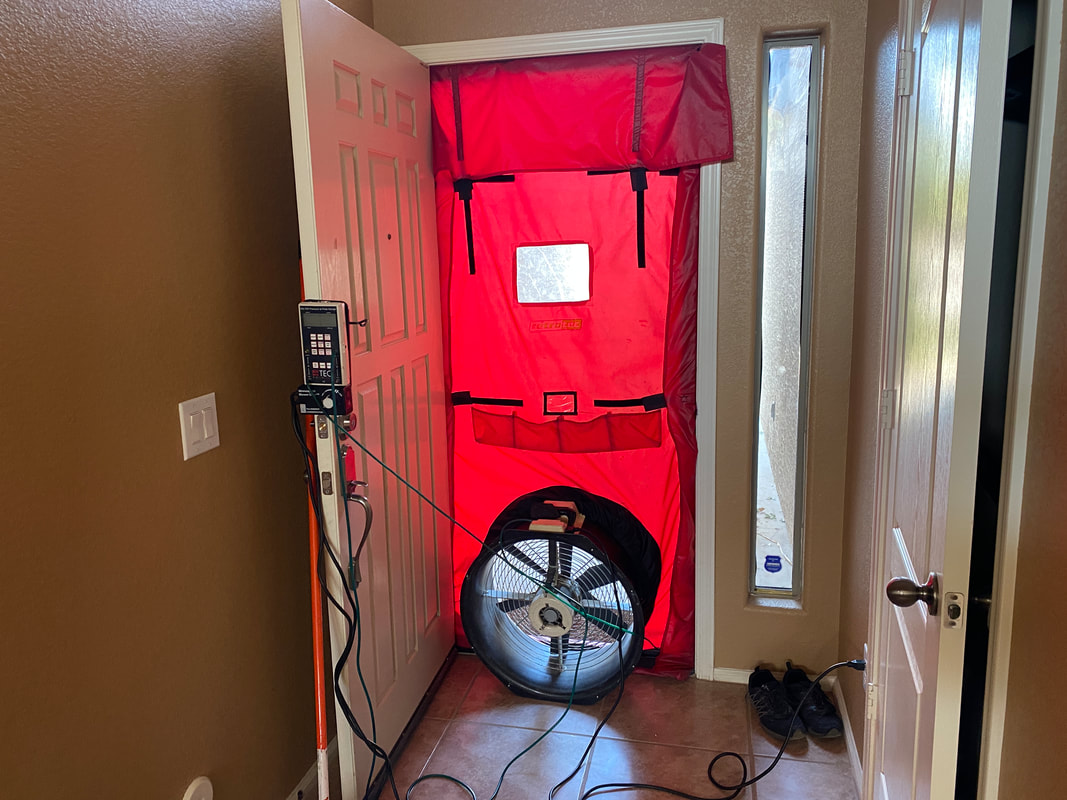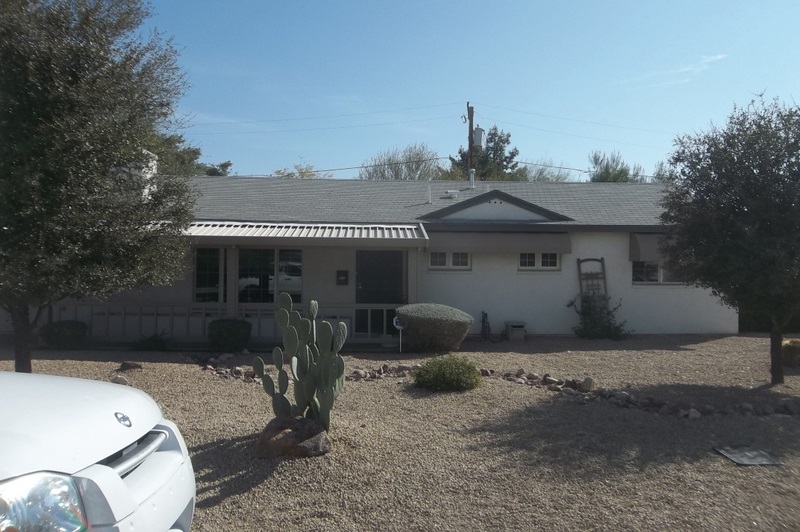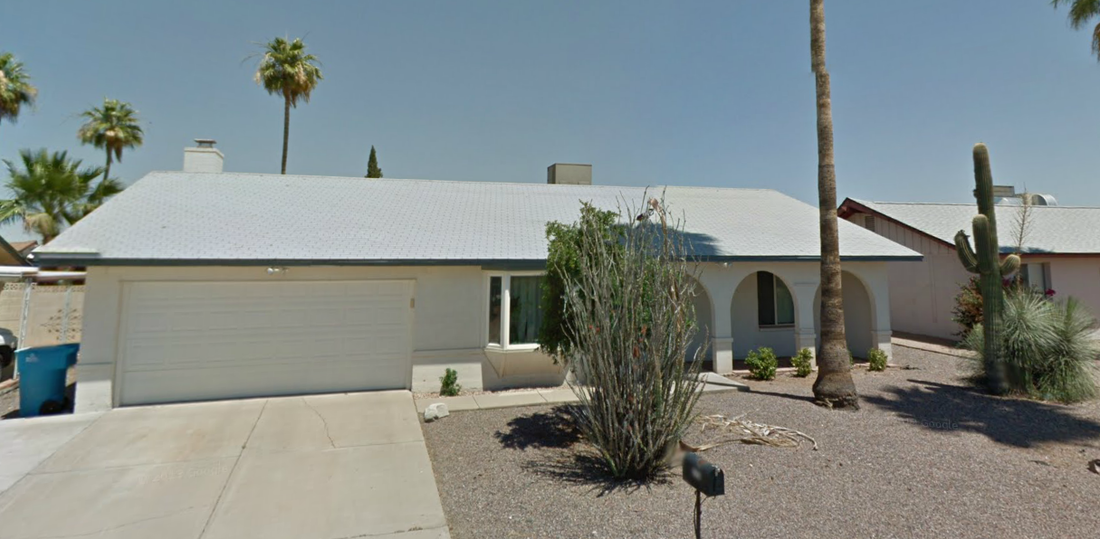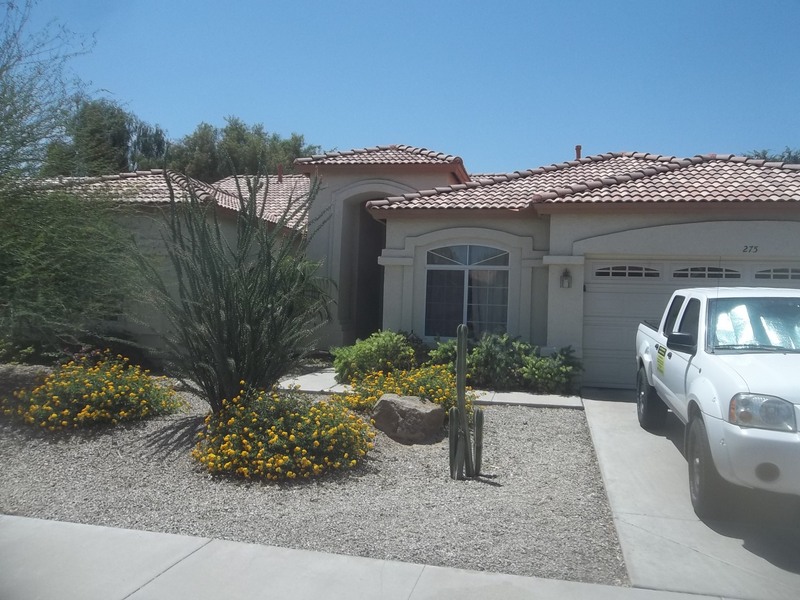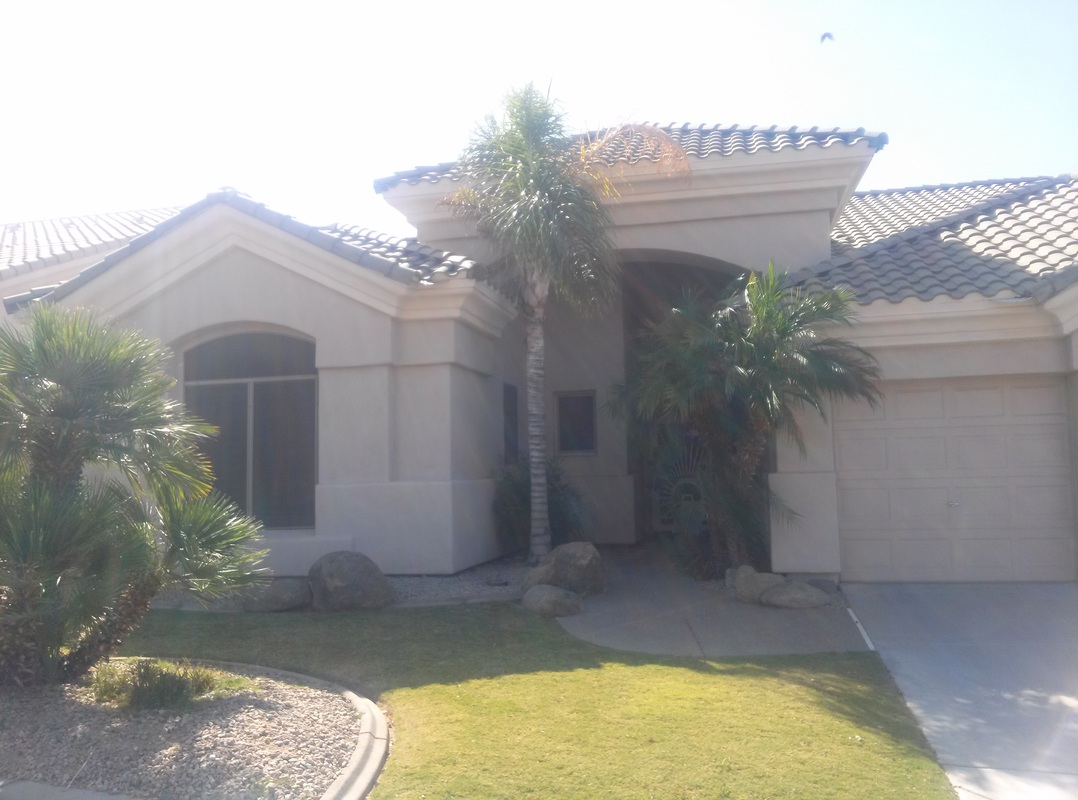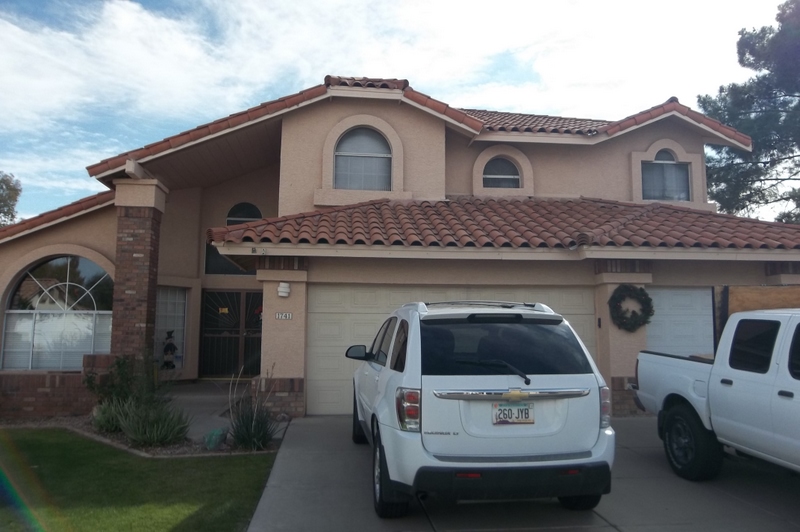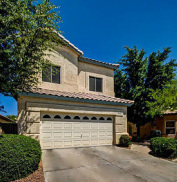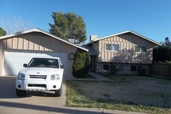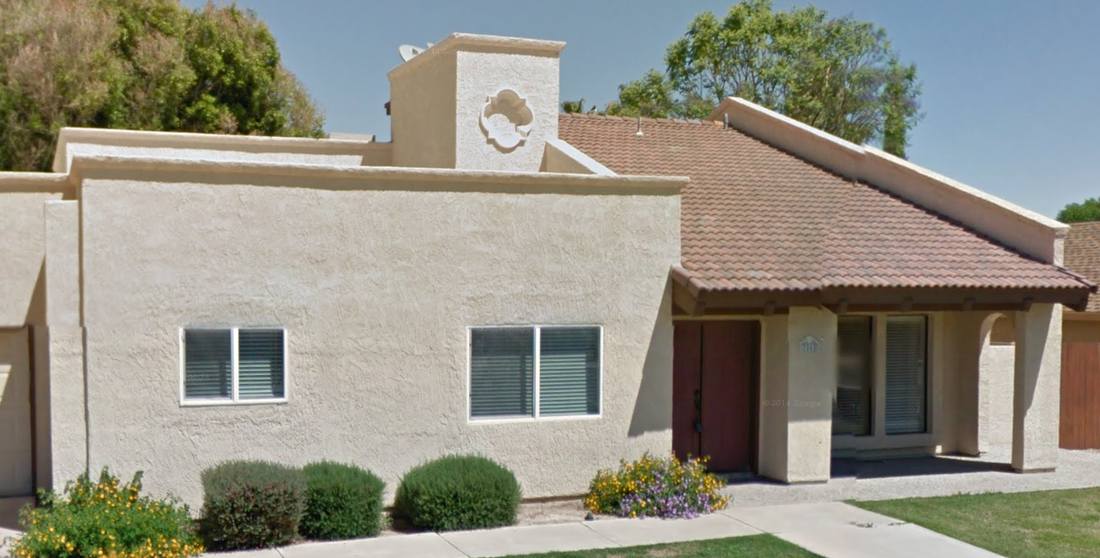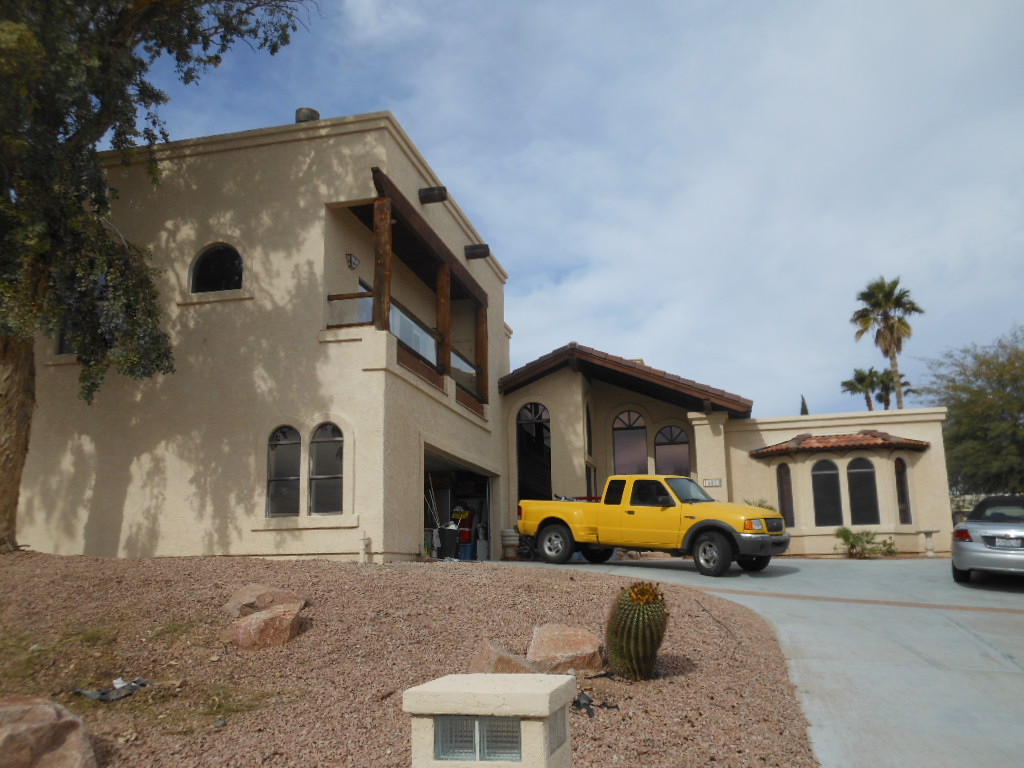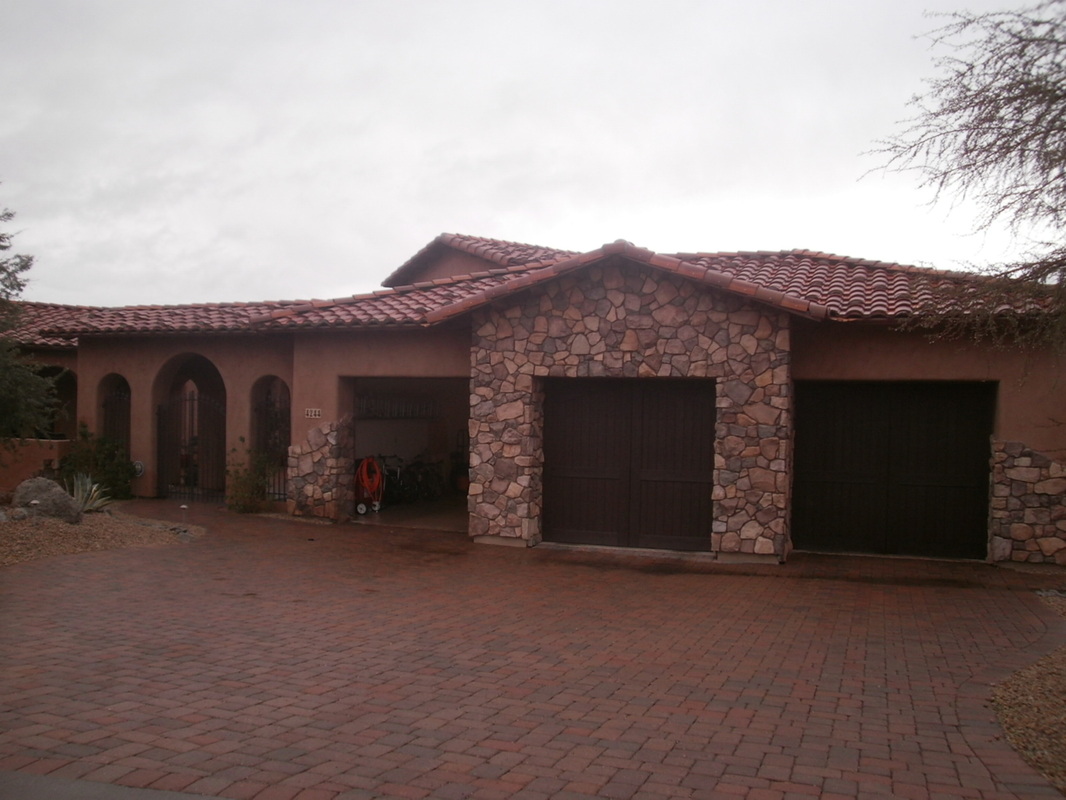 If you are considering having a home energy audit, here are some reasons why and why not to get a home energy audit. I also address some common misconceptions about energy audits to help you make an informed decision. In Phoenix, for existing homes older than 5 years, the cost is only $99 for an energy audit which is much less than a home inspection and quite possibly a much better investment for your money. A good energy audit is based on the numbers of the tests performed, a consideration of your lifestyle at home and combines those with the experience of energy auditor to find the best ways to reduce energy bills, fix hot rooms and improve air quality. Sometimes the best thing we find is that there was nothing to find. Other times it can seem like the list of recommendations is endless. Either way you are more informed than when you started. At Green ID we are passionate not only about energy savings and comfort but also if we can get you to NOT invest $20,000 on new windows, Intellifilm, solar attic fans and radiant barrier chips, that’s a win too. Here is what the DOE says about Energy Audits. Common Misconceptions of Home Energy AuditsIt's All About The Windows Sun struck windows are always a weak point in a home’s thermal envelope. If a window gets more than two hours of direct sunlight, it’s cost effective to put a shade screen on the exterior of the window but no more. Even on single pane windows where the windows won’t even close right, it’s never cost effective to replace your windows and you will never save 30% on your energy bills by changing windows. We have done hundreds of energy models and the numbers never show that replacing windows are cost effective in a hot dry climate like Arizona. Many homeowners believe that leaky, old windows are the main cause of their hot rooms or high energy bills and that’s just not true. Save yourself $20,000 and skip replacing the windows for a solar panel system that will save much more money. You Won’t Learn Anything New From The Energy Audit Yes you can do things on your own. I’ve written an entire new post about how to do a DIY home energy audit and there are still tests and knowledge an energy auditor will be able to do that you can learn from. It doesn’t matter if you’re an engineer, doctor, facilities manager, HVAC technician, electrician, window guy, home inspector, real estate agent or even a commercial energy auditor, you don’t know everything about your home that an energy auditor will find. Can you learn it?... of course you can. Being a good energy auditor requires knowledge of building science, being a good detective and getting your hands dirty and crawling around attic spaces all while being focused around solving home durability, comfort, health and safety and efficiency problems. We do this day-in and day-out and that’s where the biggest difference between energy auditors and the other trades lie. Seeing 500 homes a year, plus weekly meetings and training, performing installations and gaining customer feedback gives makes us home energy experts. You Can’t Do Anything Because Of A Flat Roof Flat roofs have a layer of urethane spray foam protecting the inside of the house from the extreme Arizona heat. Just because no access can be gained doesn’t mean that the ductwork is sealed or that the insulation is good. A thermal imaging camera can identify missing insulation without tearing down walls and a pressure pan leakage test measures the ductwork leakage on each register, pinpointing areas of high leakage. For homes with inaccessible ductwork, we recommend Aeroseal for the ductwork, which seals the ductwork from the inside. For homes with insulation deficiencies, we assess whether it is severe enough to cut an access into the attic to correct the problem. In cases with just a small amount of insulation defects, it is not worth the drywall removal and repair. In cases that have a large amount of missing or low insulation, it is worth the extra cost. The good news is that in some homes we can access the attics from roof vents or interior attic accesses. That annoying light you can see around your doors is not wasting as much energy as you think. In Phoenix, gaps around your doors that let light inside are obvious energy wasters, letting the hot summer air creep inside all day long. This type of air leakage is highly visible and stays top of mind for most people thinking about ways to save energy however that’s not the case in Arizona. We have run the numbers hundreds of times and air sealing those gaps around the doors saves less than $5 a year. My wife calls me a penny pincher on my good days and a cheap bastard on my bad ones and I won’t deny it. There was a time where I tail-gated semi trucks to save on gasoline because the wind resistance is less the closer you can get to the semi trucks and therefore you get more miles to the gallon… not the safest way to save a buck and I’ve seen stopped that practice. So if I can save $5 a year with a DIY weatherstripping improvement I will do it. I’ll also take off all my electrical and light outlet covers and put socket sealers behind the cover plates, knowing it’s not going to save me much money but that it will save something. Green ID our energy audits focus on all types of energy saving methods, from the no cost thermostat management strategies all the way to HVAC improvements. However your money and energy are best spent on big improvements that have a larger impact on reducing your energy bills and fixing hot rooms. Why spend $100 to save $5 a year (a 20 year ROI) when you could spend $1000 and save $200 a year (a 5 year ROI). All Home Energy Audits Are Not The Same  I’ve seen companies that have paid energy audits come back as fluff either because the energy auditor was inexperienced or is more sales oriented. Typically companies that are mainly insulation, HVAC or do solar as their main business are not good energy auditing companies. The energy auditors are typically inexperienced or the company pushes their main services and overlooks other defects, however bad they may be. Inexperienced energy auditors tend to focus on the wrong things like air leakage around canned lights and misses easy energy saving fixes like changing the settings on a recirculation pump. If the company primarily does insulation for example, I’ve seen recommendations completely miss airflow problems. HVAC companies may be strong in fixing broken air conditioners but ask them to find thermal bridges in the insulation and you’ll get a blank stare back. The Truth About Free Energy Audits  In general I would skip over the free energy audits, which are really just sales presentations and estimates. The harm in these free audits is what they miss by not doing a thorough inspection. There is no way to visually look at the ductwork and tell how much the entire system let alone one duct line is leaking. This is important because duct leaks are often hidden under the outer and insulative liners covering the actual connections of the ductwork. Flex ducts could be in hard to reach out shoots of the attic under firewalls and I doubt a commissioned sales person is going to want to crawl around your attic to find out. Insulation defects are another commonly missed item during a free energy audit that should be identified during a complete energy audit. If a sales person just sticks their head up the attic hatch or never goes past the plywood walkway in the attic- you can expect a cookie-cutter solution that will not fix any insulation defects and when the installers come to do the work…guest what? They won’t know what they are looking for and literally blow right over the problem. The Interview Is Valuable Living in the home, you have valuable insight for an energy auditor. Smells, comfort and temperature differences, how the temperature changes throughout the day, weird HVAC tendencies, how you use the home, how many people live in the home, temperature settings at each thermostat all give us clues that we can’t “test” during our time in your home. When Is A Home Energy Audit Not Worth It  Obviously, Green ID does home energy audits but that doesn’t mean that every home needs an energy audit. Here is a list of when an energy audit may not be needed.
A Home Audit Is Ideal If You Have...
A Home Energy Audit Is Worth It Even If You Have: 
DIY Home Energy Audit Yes, there are certainly items you can do yourself to check your energy usage and perform your own audit. Depending on how comfortable you are crawling around your attic, you can even search for obvious duct leakage around connecting ducts. Here are some DIY energy saving checks to do your own energy audit.
What Can A Paid Energy Audit Find That A DIY Energy Audit Cannot? An energy auditor will have a blower door to depressurize the ductwork and actually measure the duct leakage on each register. This is better than a visual inspection because sometimes the leaks can occur in areas not easily visible or even in accessible areas and the numbers don’t lie, if you have low ductwork leakage then it’s obvious that you can save money by not doing duct sealing. You never know until you test.
A thermal camera scan is a powerful visual tool that is better than a laser temperature gun because you can see a larger picture with the thermal camera. It’s a good DIY tool to go around your home and measure for hot spots by seeing an increase in temperature readings but it’s a painstaking effort scan the entire home and most DIYer’s don’t know the hot spots to look for like kneewalls, air barriers and duct chases. Our energy auditors are experts in attic inspections whereas most homeowners may only go in their attics twice a year and don’t know what they are looking for. We take airflow measures to check the proper duct sizes, check that your insulation is installed correctly (then measure the depth), check for code violations in the furnace flues and drain lines, check for air barriers, proper attic ventilation, ductwork design and layout. We know how to look at the home-as-a-system of interconnected parts and can help recommend priority upgrades over gimmick energy saving products (KVAR, solar attic fans and TCM radiant barrier).
2 Comments
9/23/2021 09:57:27 pm
I definitely agree that it is important for us to audit our bills to monitor our finances. My wife and I just converted our electric bill to green billing. I will have it audited to compare the differences.
Reply
Len
8/10/2022 08:48:11 am
How do I find local people who understand duct work, J calculations, etc. ?
Reply
Your comment will be posted after it is approved.
Leave a Reply. |
Sign Up For Your Home Energy AuditFIND YOUR HOME TYPERanch HomesSingle Story, Spec HomesTwo Story, Spec HomesTri-Level HomesPre-1990 Custom HomePost-1990 Custom HomeDon't See Your Home? Find Your City Below!Archives
April 2024
Copyright Notice©2009 – 2023
All Rights Reserved |


